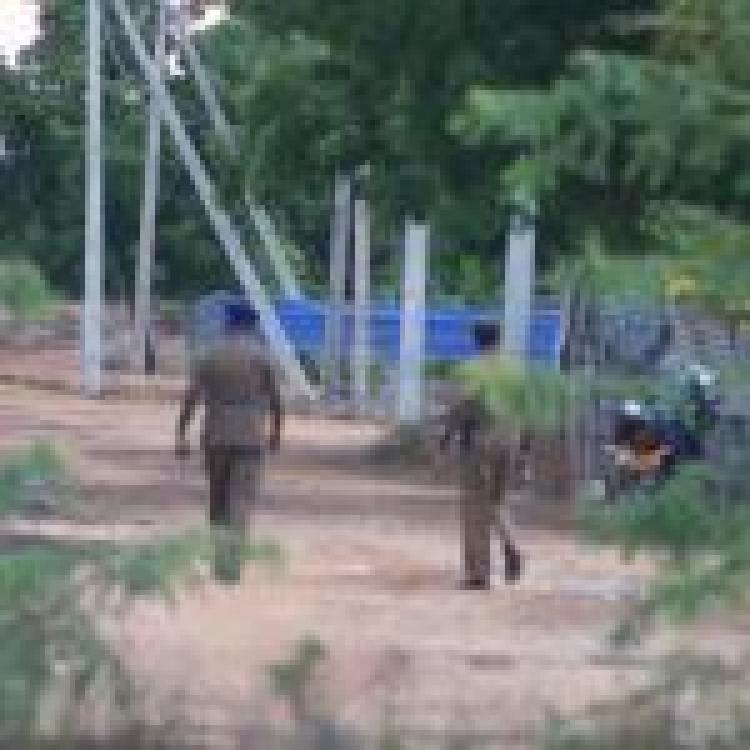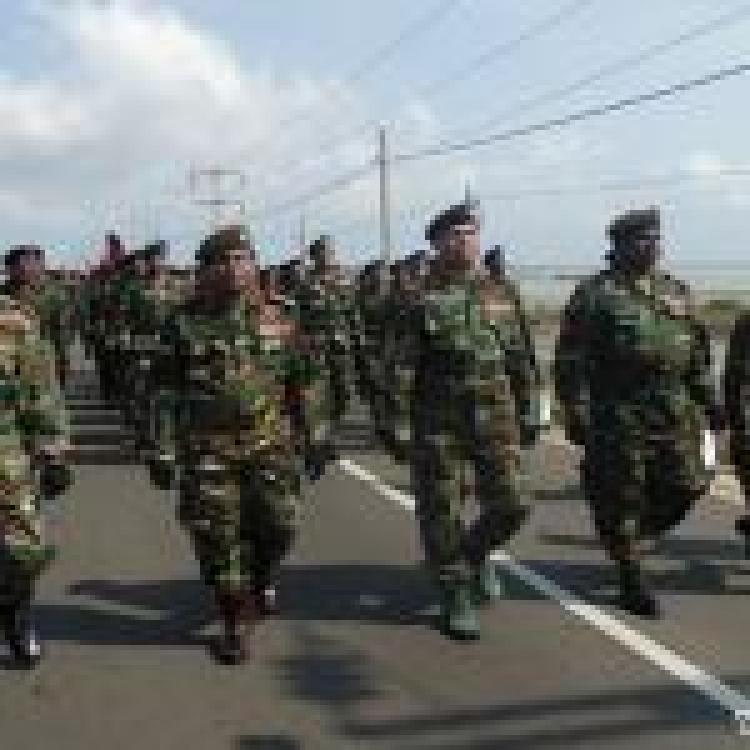.jpeg)
Locals in Mullaitivu have demanded the removal of several Sri Lankan military checkpoints, which were reportedly set up to enforce coronavirus related lockdowns but have persisted for months afterwards without any explanation.
The roadblock-style checkpoints, have been set up on all four roads leading to Puthukkudiyiruppu Junction in Mullaitivu. The junction is usually kept constantly busy with crossing vehicles, but locals have long complained of the inconvenience caused by the military checkpoints.
Armed and masked soldiers are always on guard and locals frequently complain of harrassment by the security forces.
.jpeg)
The continuation of these checkpoints has become a hallmark of Sri Lanka’s militarised occupation of the North-East, which has a massively disproportionate armed presence. Tens of thousands of Sri Lankan soldiers remain stationed across the Tamil homeland, with frequent reports of harrassment, intimidation and rights abuses. Mullaitivu in particular remains on of the most militarised regions on the island, with studies reporting as many as one soldier for every two civilians in the district.
.jpeg)
The call to remove the checkpoints in Puthukkudiyiruppu comes after the Coordinating Secretary to the Prime Minister of Sri Lanka was embroiled in controversy earlier this week, after he claimed “it's everyone's duty to cooperate with security personnel for all of our safety”. He went on to state,
“SriLanka has suffered a war against terrorism & monitoring continues round the clock. It's always better to be safe than sorry. So arguments asking why checkpoints operate is complete nonsense. Please cooperate with men on duty, day and night to ensure all of our safety.”
His comments sparked widespread criticism.



